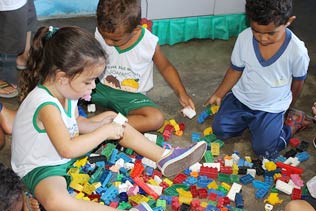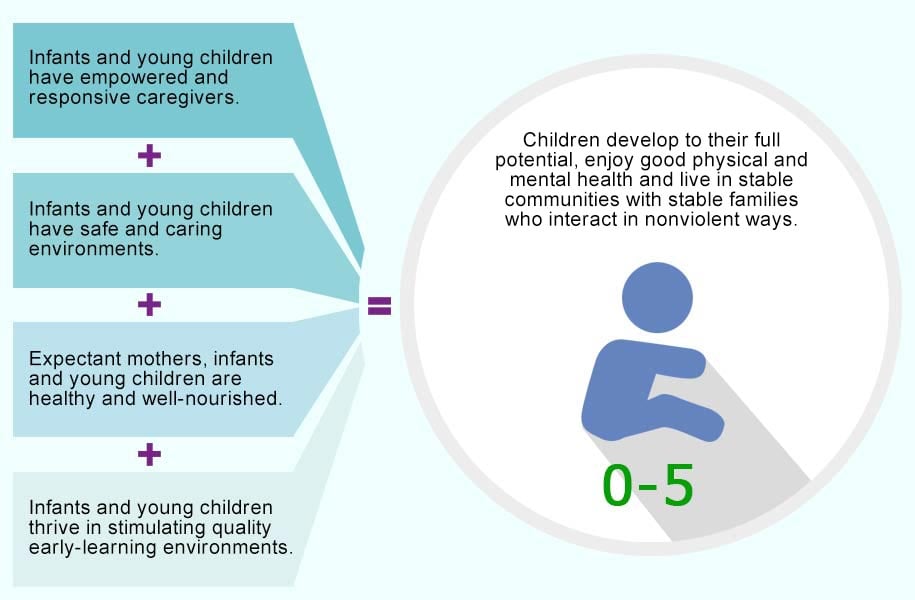Site will be
unavailable for maintenance from June. 4, 11:30 p.m., to June 5, 12:30 a.m. ET. Thank you for your
patience!
Ages 0 to 5

The Youngest Children

Three-year-olds play with Legos at an ECD program run by SOAFAMC in Crato, Brazil.
Children need loving caregivers, health care, nutrition, clean water and sanitation, education, opportunity and safety.
So much depends on the first years of life.
Children’s earliest experiences of their families and the world around them are the foundations for all that follows. During this sensitive time, the brain develops rapidly and grows ever more complex. By the time a child reaches age 5, the areas that govern language, motor coordination, problem solving and self-control are well defined.
For all children, the quality of this development depends on the presence of certain conditions in their lives:
- Do they have loving, responsive caregivers?
- Are they safe?
- Are they and their mothers healthy, and do they have access to care?
- Are they and their mothers adequately nourished?
- Do they have opportunities to learn?
Poverty, social exclusion and vulnerability can overwhelm families’ ability to provide the environment their very young children need to live fully. Instead, children may suffer extreme deprivation, neglect and abuse, with their parents and caregivers unable to meet their needs or support their rights.
Right now, for any of these reasons, 200 million children under 5 are not achieving their full potential. For any child, this means long-term effects on his or her development. In fact, many issues facing adults in impoverished communities trace back to those early childhood years.
What happens to children early in life directly affects their ability to be productive adults.
ChildFund ensures that the youngest children start their lives in the conditions they need to live at their potential — from the beginning.
ChildFund’s Theory of Change for Ages 0 to 5

Our Approach
To promote the stable, caring and supportive environments young children need for the best start in life, ChildFund works comprehensively across health, nutrition, education and child protection to address the needs of this age group:
- We support parents and caregivers to develop the skills and resources they need to be responsive to both their own needs and the needs of the children in their care.
- We ensure children’s and families’ access to health and nutrition, and we educate parents and caregivers about their role in preserving maternal and child health. Initiatives in safe water and sanitation go hand in hand with our health and nutrition efforts.
- We promote access to quality early learning environments that stimulate children's learning both inside and outside of the home.We promote safe and protective home and community environments where children’s participation is recognized and their rights protected.
Learn More
Find out about our programs for children ages 0-6 in
Dig Deeper
Indigenous People's Plan: Pilot to improve the development and nutrition of young children in Guatemala (Nuestros Niños Sanos y Listos Project) | 2014
Empowered and Responsive Parenting Research Report | Ecuador | 2013
Empowered and Responsive Parenting Research Brief| Ecuador | 2013
REACH Narrative Report | Informal Interviews | Indonesia
